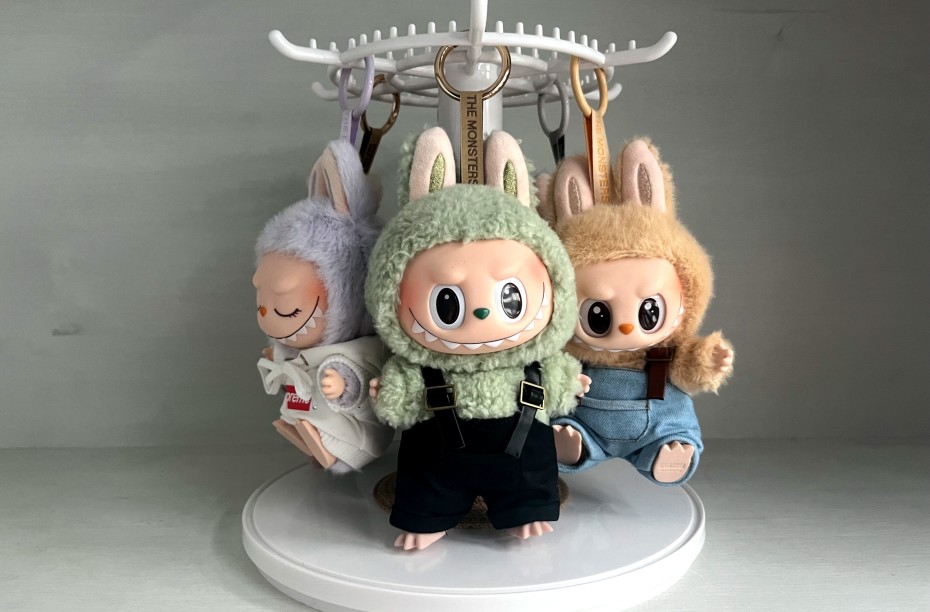Young consumers in China and beyond are turning to collectible figurines for comfort, identity, and emotional release

By Belmont NewsBeat
“It has a little bit of playfulness and quackiness — and a little bit of rebelliousness,” a collector says of their favourite toy.
In the summer of 2025, Labubu took the toy world by storm: scuffles broke out at Pop Mart’s London store; kilometre-long queues formed at 3am in Los Angeles. So, what is it about this ‘ugly-cute’ little monster that’s making young people everywhere lose their minds?
If you are somewhat perplexed, you’re not alone — even many seasoned consumer-market investors don’t understand this best-selling product. They’ve spent years focused on traditional giants like liqor- maker Moutai and Wuliangye, or Midea air conditioners, but when it comes to IP incubation, blind box lotteries, and placing high-end plastic toys in offline luxury retail, they struggle to make sense of the logic.
In a world saturated with digital content and algorithmic experiences, few would have predicted that small plastic toys could become one of the biggest trends among young consumers in China, even abroad. Yet Pop Mart, the designer toy giant, has achieved just that — transforming blind boxes and original characters like Labubu and Molly into a billion-yuan cultural force.
This transformation reflects a larger shift in the emotional and aesthetic consumption habits of China’s younger generation, a trend now known as the “Guzi economy” (谷子经济).
From fandom to fortune
Derived from ACGN (Anime, Comic, Game, Novel) communities, “Guzi” is slang for collectible figurines and fandom merchandise. Once confined to hobbyist circles, Guzi has now matured into a full-fledged consumer economy driven by emotional value, identity formation, and digital community culture.
The numbers speak for themselves. In 2024, Pop Mart reported annual revenue of RMB13.04 billion (around US$1.8 billion), a 106.9% year-on-year increase from RMB6.30 billion (around US$875 million) in 2023. Its adjusted net profit soared to RMB3.4 billion (around US$468 million), up 185.9%In .
Much of this success can be attributed to the explosive rise of Labubu, a character from its “The Monsters” series, which alone generated RMB3.04 billion (around US$420 million) in 2024, a year-on-year growth of 726.6%. That one IP accounted for nearly a quarter of Pop Mart’s total revenue, and its success was supercharged by viral celebrity endorsements. Global pop icons such as Blackpink’s Lisa, Rihanna, Kim Kardashian, and Dua Lipa were seen posing with Labubu dolls, igniting demand not only in China but around the world. In June 2025, a Beijing auction house sold a human-sized Labubu figurine for RMB1.08 million (around US$150,000) .
Guzi goes global
However, the rise of Guzi is not merely a Pop Mart story — it is a reflection of broader changes in Chinese youth culture. The Guzi Economy represents a hybrid space where commerce meets emotion, IP meets identity, and collection meets community. Consumption here is not driven by necessity, but by meaning.
Social platforms such as Xiaohongshu and Douyin have become central to the Guzi ecosystem. They are not only marketing channels but community spaces where consumers share unboxing videos, curate themed displays, and even trade rare pieces. These platforms turn Guzi collection into a digital social ritual. Resale platforms like Xianyu (闲鱼), Alibaba’s secondhand goods marketplace, have also become essential in sustaining the aftermarket for Guzi, with “hidden editions” often reselling for five to ten times their original price.
Internationally, the Guzi economy has become one of China’s most unexpected cultural exports. In 2024, Pop Mart’s international revenue reached RMB5.07 billion (around US$707 million), a 375% increase from the previous year. This overseas income now accounts for 39% of its total revenue. In the first quarter of 2025, the company continued this momentum. The company reported a staggering 165%–170% year-over-year revenue surge, fueled by an overseas revenue explosion — US sales jumped 895%, while European sales soared 600%.
The company has set a target of RMB20 billion in revenue for 2025, with over half expected to come from international markets.
Owning and scaling emotional brands
The success of the Guzi economy rests on the fact that it serves a deeper emotional function in a society marked by loneliness and psychological pressure. In megacities like Beijing and Shanghai, where “empty-nest youth” often live far from family or friends, Guzi become tiny companions and emotional anchors. Its affordability has also made it especially appealing during times of economic slowdown, when people are more cautious with spending but still crave small comforts and emotional rewards.
In addition, companies like Pop Mart have perfected a vertically integrated IP economy — from character creation and storytelling to design, manufacturing, and retail — allowing them to own and scale their emotional brands across platforms and borders. Finally, the blind box mechanism, while controversial, has proven to be commercially powerful. The surprise factor makes buying feel like a game or a lottery, which keeps people excited and wanting more.
Looming risks against a positive outlook
Yet the Guzi Economy is not without its challenges. Regulatory scrutiny is growing. In 2023, the State Administration for Market Regulation issued new rules requiring greater transparency for blind boxes, including clear disclosure of odds and purchasing age limits to protect minors. Meanwhile, concerns over overproduction, emotional dependency, and market fatigue remain on the horizon.
Still, what’s clear is that the Guzi economy has fundamentally changed how China’s youth interact with consumption. In a market where utility alone no longer drives value, emotion, narrative, and identity have become central. Pop Mart is not just selling toys—it is selling companionship, nostalgia, and meaning in plastic form. In doing so, it is helping define what emotional capitalism looks like in 21st-century China.
As international brands take note, and as Chinese IPs like Labubu and Skullpanda gain further global traction, Guzi shows that even in today’s digital world, people still want to hold and connect with something real. And if 2024 is any indication, the golden age of Guzi is just beginning.
